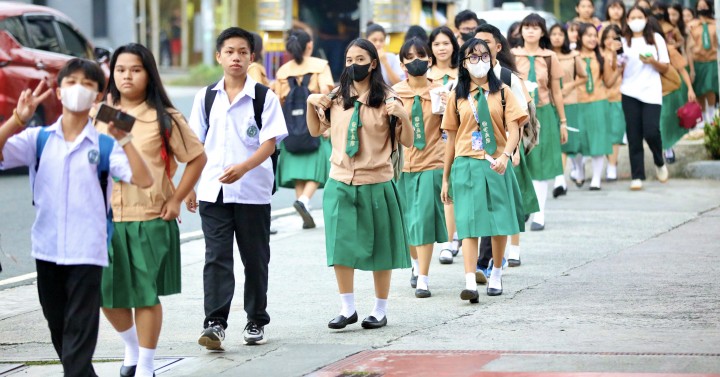The Teachers’ Dignity Coalition (TDC), a prominent association representing educators in the Philippines, has called on Congress to investigate allegations of fraudulent activities within the Department of Education’s (DepEd) senior high school voucher program. Claims have emerged regarding the presence of so-called “ghost students” in the program, which allegedly involve falsified or non-existent student records for financial gain. The TDC believes that a formal investigation is crucial in identifying and holding accountable those responsible for orchestrating this scheme.
The senior high school voucher program is designed to provide financial assistance to students enrolled in private schools. The intention is to make quality education accessible to a broader range of students, by subsidizing a portion of their tuition fees through government vouchers. However, the allegations suggest that some individuals may have exploited this system by creating fake student records to claim voucher funds fraudulently.
TDC’s call for an investigation highlights the significance of maintaining integrity within educational programs, especially those funded by public money. The coalition emphasized that any misuse of these funds not only undermines the program’s objectives but also deprives deserving students of educational opportunities. The group has urged lawmakers and relevant authorities to take swift action in investigating the matter to prevent further misuse and to restore public trust in the education system.
In response to the growing concerns, DepEd has expressed support for initiatives that aim to address and rectify these alleged irregularities. The department has acknowledged the importance of ensuring accountability and transparency within its programs. By endorsing efforts to investigate the claims of “ghost students,” DepEd aims to demonstrate its commitment to upholding the credibility of the educational system.
The issue of “ghost students” has raised broader questions about the oversight and management of educational programs in the Philippines. Ensuring that such programs deliver their intended benefits without falling prey to fraudulent practices is a primary concern for educational authorities. The investigation could potentially lead to reforms aimed at strengthening monitoring mechanisms and improving the accuracy of student data within the program.
The alleged irregularities underscore the challenges that educational authorities face in safeguarding the integrity of financial aid programs. These challenges are not unique to the Philippines and reflect a global issue where well-intentioned programs are vulnerable to exploitation. The call for an investigation by TDC seeks to highlight the necessity of robust safeguards and the implementation of stringent measures to detect and prevent fraud.

